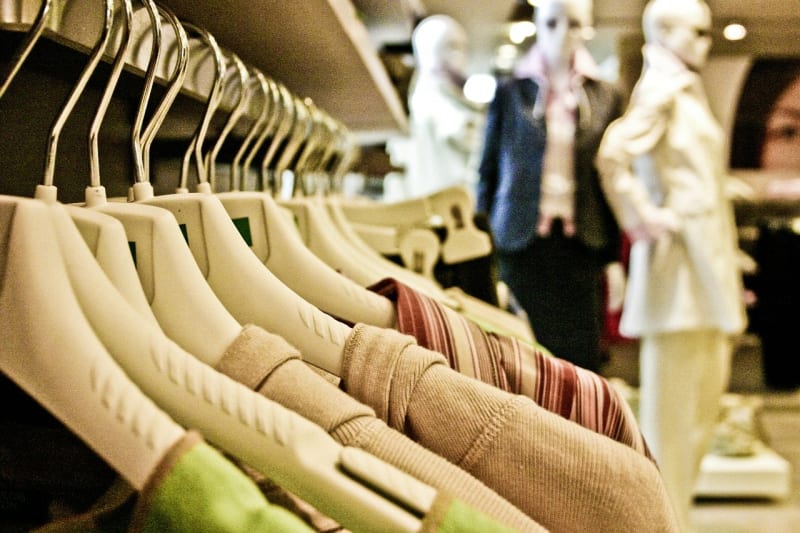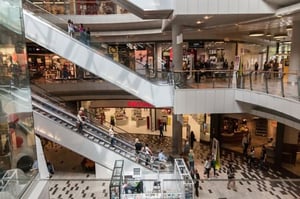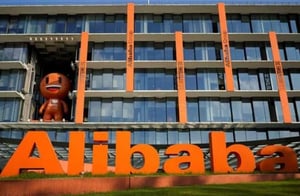
For many, the prospect of shopping elicits one of two images. The first and more pleasant is that of casually browsing goods in a mall or department store and searching out a deal or coming across something needed – generally a happy experience for those that enjoy the process. The second is of crowded stores, poor service and a feeling of futility when sought-after products are not found.
For expats who prefer quality at fair prices at the higher end of the consumer market, the retail experience can cause sticker shock. Products like high-end electronics or high quality bed and bath linen fall into the luxury category of Chinese government taxation, which applies a 20% luxury tax on all imported luxury products. The ironic aspect of purchasing many of these products in China is that they were manufactured in China, exported abroad, then imported back to China at a 20% premium and then sold to the wealthy Chinese consumers that have the quality preference not satisfied by normal local retailers. Many of these consumers tend to travel to Hong Kong, Singapore, or Europe to purchase luxury items as the savings often outweigh the cost of the flight. There are even those who have made a business out of traveling for this specific purpose and then retailing foreign luxury items on local Chinese online retail sites by splitting the savings for a profit.
So for those shoppers who tend to enjoy shopping, expect to move to category two when you move to China, for those that are in category two (you hate shopping with a passion!) you can expect to find the retail experience in China infuriating at the very best.
China’s retail shopping experience
 Aside from some boutique shops catering to a specifically expat crowd in expat areas, you cannot expect service in English unless perhaps by blind luck you stumble across a diamond in the rough. The result is that finding what you want or need, particularly if you have specific tastes, will be problematic at best in Shanghai or Beijing’s retail space.
Aside from some boutique shops catering to a specifically expat crowd in expat areas, you cannot expect service in English unless perhaps by blind luck you stumble across a diamond in the rough. The result is that finding what you want or need, particularly if you have specific tastes, will be problematic at best in Shanghai or Beijing’s retail space.
China’s development in the last 25 years has seen a steady move from the small shop economy to modern malls and box stores, but in the last 10 years big retail brands have struggled in China too as commerce moves increasingly online. Best Buy was one of the big bombs of the last 10 years after it set up next to the electronics market in Xujiahui in Shanghai at the epicentre of one of the city’s most iconic shopping areas.
As it turns out, Chinese consumers were thrilled to have a big American brand with excellent service selling a curated inventory of high quality electronics as they flocked to the shop in droves. The problem was they wanted the environment, service and to look at the electronics but they didn’t want to buy. They just went home and purchased the same model online from a Chinese website for a small discount.
With Walmart owned Sam’s Club gaining traction in China, Costco has announced the opening of its first store in Shanghai. America’s largest and wildly popular members only warehouse store will have a positive impact on the level of retail satisfaction felt by foreign residents of the city particularly if online shopping is offered in English.
When it comes to exposing yourself to the retail experience in China you will quickly learn that avoidance of certain areas on weekends is crucial to maintain one’s sanity. Big supermarkets like Carrefour and Auchan may seem like a reasonable destination on a Sunday afternoon, but you would be mistaken. There is a list of the Carrefour locations with the most foot traffic across the world and coming in at number one is the Gubei location of Carrefour in Shanghai. You can imagine what that location looks like on a Sunday afternoon. It is literal gridlock of shopping carts with long checkout lines for added measure.
Similarly, Ikea on Sundays is to be avoided as not only are there people actually shopping but a good portion of the throngs of locals there on the weekend, go as entertainment to browse furniture, have a nap in a bed, or at the location in Xujiahui in Shanghai, start a seniors dating club in the Ikea cafeteria.
In the case of both Ikea and Carrefour, the major issue is that both force you into a maze upon entrance to the store that you must navigate successfully in order to reach an exit. That means that once you are in, its going to be a hike through dense foot traffic no matter what.
As with the rest of the world and perhaps even more so, Mainland China’s domestic online retail economy is thriving. Prices range from excellent to outrageous and quality from rock bottom to the very best. It is in this vast variety that the problem for Chinese language illiterate expats lies.
The Amazon of China
 China’s version of Amazon is Tao Bao and within its e-walls lie untold treasures and deals that would make even the most avid consumer blush. The problem is that Tao Bao sellers will generally only have an extremely basic level of written English skills – if any – and given the insanely tight profit margins that most of them operate on, most will be unwilling to deal with a non-Chinese speaker simply because of the amount of time it would consume.
China’s version of Amazon is Tao Bao and within its e-walls lie untold treasures and deals that would make even the most avid consumer blush. The problem is that Tao Bao sellers will generally only have an extremely basic level of written English skills – if any – and given the insanely tight profit margins that most of them operate on, most will be unwilling to deal with a non-Chinese speaker simply because of the amount of time it would consume.
In other words, the name of the game on Tao Bao is volume. One way that Tao Bao excels over Amazon in is in its structural control over a seller’s reputation. Opening a store on Tao Bao is an involved process – much more so than on sites like E-bay. Once an individual has lent their identity to a store, their reputation in running that store stays with them for life. In this way, Tao Bao has been able to control the quality of their stores relatively effectively.
Online local consumers base their choice of online vendor as much on reputation and user reviews as price or even quality. When Amazon opened its doors to Mainland Chinese retailers recently, one Chinese seller hawking wireless power outlet adaptors that allow people to control such things as home lighting through their smartphone received a thoroughly negative review from a tech-savvy American buyer, criticizing the complete lack of security on the device and the fact that it was routed through a mainland Chinese server.
Soon after, the buyer was contacted by a representative from the company who begged him to retract the review and who continued to implore the buyer for weeks, citing the fact that she will lose her job if the review remained. This example exemplifies the importance Chinese sellers place on user reviews. While this aspect of Tao Bao makes it structurally more reliable from a buyer’s standpoint, it puts the utility of the site from an expat standpoint even further out of reach, as all reviews are of course in Chinese as is the site itself which, incidentally, has a habit of malfunctioning when using a VPN and/or Google Translate, which is of course blocked by China’s Great Firewall.
The immediate and obvious solution, one would think, is to order online from a US- or Europe-based website. There is one problem, however; when you combine a 4-8 week timeline for shipping by sea (which is the only option given the sky high prices of air freight delivery) with a 2-4 week customs processing timeline and all of a sudden you have a 8-12 week timeline for delivery.
The solution to Tao Bao’s language barrier is to use one of the many Tao Bao agents that operate as a middleman for non Chinese speaking people wanting to make purchases on Tao Bao. To use their services, you simply browse Tao Bao for the items you want and copy and paste them into the agent’s website after you create an account. Their agent will contact the seller and act as an intermediary to facilitate the sale. Their fees are not high, they have English speaking support staff and usually waive the fees on repeat orders of the same goods. Establishing a shopping list of items on their store to be referred to later makes the whole process convenient and hassle free.
Another excellent option for larger retail purchases is Alibaba. The online platform was built to facilitate western companies’ purchases direct from Chinese factories so those companies all have English support staff, Alibaba’s website is in English and accepts foreign payments and there are some crazy good deals to be had, though expect them to try to up-sell you on a bigger order if you are buying only one sofa and not a shipping container full of sofas. The site was not intended to be a retail platform but it certainly functions well for the purposes of giving expats an English online shopping platform in China that delivers in days depending on the product.
When you search for items on Alibaba it’s necessary to set the filter to less than 2 for the minimum order. Depending on the item, this still may return a result of suppliers that can supply a minimum order of 2 metric tons of cheese, or two shipping containers of office desks but you will eventually find what you are looking for. If you find the product you want and the minimum order is 10 and you only want one mattress, then contacting the supplier and asking if they will sell a single sample, is a good strategy. This is especially true with items such as OEM (original equipment manufacturer) electronics, which presents one of the best buys in China. These products usually require inspection of samples before larger purchases are made so the supplier will agree to sell you one sample and you will have saved up to 50% on the price of what you would have paid after that same OEM computer monitor or flat screen TV after was sold in a batch of 1000 to an electronics retailer.
So while you may be using different online shopping platforms than you were at home, China has the bases covered more than adequately. The proliferation of WeChat Pay and Alipay means that once you have your bank account set up, there isn’t even a need for a credit card for online purchasing.




